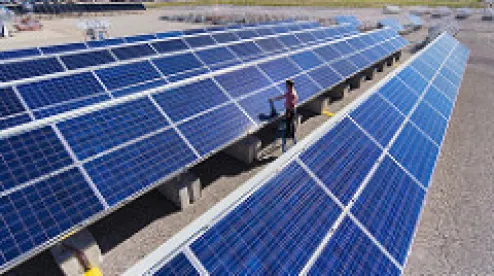On August 11th, 2017, the Massachusetts Department of Energy Resources (DOER) released its final set of proposed regulations for the Solar Massachusetts Renewable Target (SMART) program, which aims to deploy another 1,600 MW of new solar resources in the Commonwealth.
The SMART program was signed by Governor Baker in April 2016 as a new way to incentivize long-term, cost-effective solar energy projects. It features a new declining block mechanism for determining solar energy incentives, in which a base price is set for the first 100 MW of solar through a competitive auction and eight subsequent 200-MW blocks are allocated over time along with declining incentive prices.
Solar advocates are generally supportive of the most recent round of changes, which are the culmination of a long series of criticisms the original program proposal. Notably, the latest regulations increased the cap on bids for the first 100 MW auction, setting prices at more agreeable $0.17 per kilowatt-hour. The regulations also establish rates for specific projects such as landfills, brownfields, and solar canopy structures. The SMART incentives target projects at or below 5 MW, but now offer more flexible restrictions on how project size is calculated.
These new regulations are a meaningful indicator of both the administration’s commitment to enabling a diversity of solar projects, and to actively addressing the concerns vocalized by solar advocacy groups. However, these groups note that the next critical step will be to once again raise the state caps on net metering. Solar providers have repeatedly been meeting these caps with each successive increase over the last several years, and raising them will be important to ensuring Massachusetts’ continued status as a leader in solar energy innovation.
The DOER has filed its proposed final version of the SMART Program regulation with the Secretary of State’s Office. This version was published to the Massachusetts Register on August 25th.




 />i
/>i
